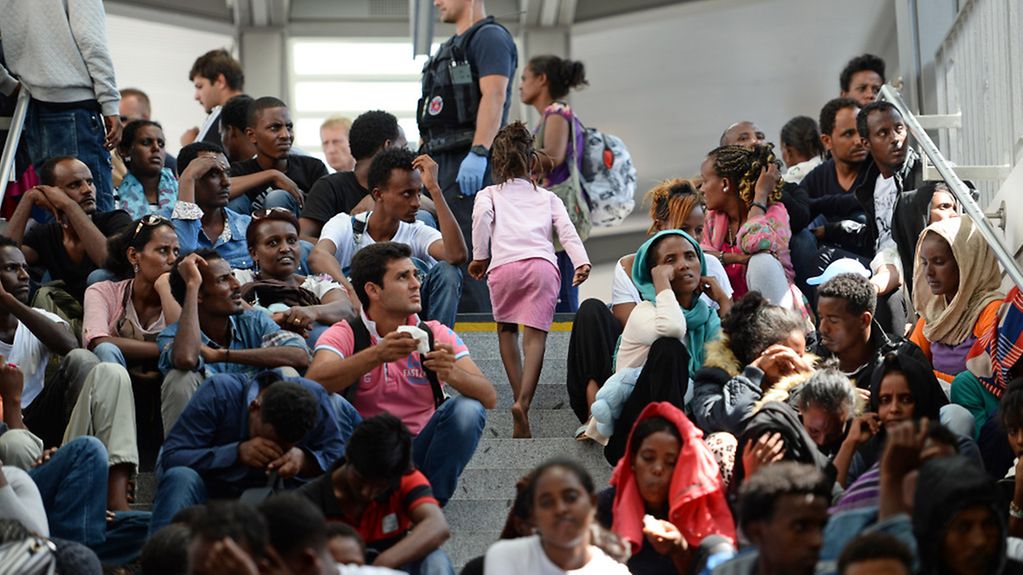800,000 refugees expected
Up to 800,000 asylum seekers will come to Germany this year, Federal Interior Minister Thomas de Maizière said on Wednesday when presenting a refugee prognosis for 2015. That would mean about four times more people than last year. Germany is challenged, but not overwhelmed, the minister declared.
3 min reading time

More and more refugees are awaiting registration in Germany
Photo: picture-alliance/dpa/Gebert
This is the highest number of refugees since the Second World War. The reasons for the increase include armed conflicts and political persecution. A weakening of this trend is currently not expected. For the first time, there has been a slight decrease in asylum migration from the Western Balkan countries. However, it is too early to speak of a trend reversal, Federal Interior Minister de Maizière declared when presenting the 2015 refugee prognosis.
Challenged, but not overwhelmed
The rising numbers are "a challenge for us all which we will take up together," de Maizière said. He announced that the federal and state governments were setting up a coordination staff that will begin its work on Monday. The minister added that "the time has come to explore new avenues, to find pragmatic solutions". Another so-called "refugee summit" has thus been planned for 24 September. Moreover, four decision centres will be put in place throughout Germany to deal mainly with pending asylum procedures.
The growing number of asylum seekers and refugees poses a "formidable challenge" to Germany, Federal Chancellor Merkel had said in her summer interview with the German public broadcaster ZDF. The Federation, the Länder and local authorities must work together to find common answers. "But we cannot find them if we work in the normal mode," Merkel stressed. "We must try to mobilise all personnel reserves."
Time for European solutions
Within the European Union, Germany is by far the country taking in the most asylum seekers. All European countries must meet their responsibilities, the minister said: "Europe has to prove itself as a community of solidarity". Germany cannot, on a permanent basis, take on 40 percent of all refugees who arrive in Europe, he stressed.
Many refugees stay in Germany
De Maizière noted that many of the refugees who come to Germany will stay. "We have to welcome and integrate them", said the minister. However, those with no prospects of being granted the right to stay in Germany must leave the country.
Every refugee coming to Germany has "the right be received and housed in a dignified, safe and decent way. Hate, insults and attacks on asylum seekers and refugee shelters are unworthy of our country. We will meet them with the utmost severity", de Maizière emphasised.
Focusing on help in the countries that need it
The Federal Government’s basic view is that Germany cannot solve in Germany the distress caused by civil wars and humanitarian disasters. Therefore, it is still necessary to intensify on-site assistance. It is important that people quickly be given better prospects in life, especially in North Africa. In order to achieve this, Germany provides help bilaterally and together with the other EU states. It places the focus of its refugee aid on the regions of origin, especially on tackling the root causes of displacement and supporting host regions.
Germany lives up to its responsibilities towards people who are victims of political persecution. We provide them protection in our country, as long as they are not safe in their home country.